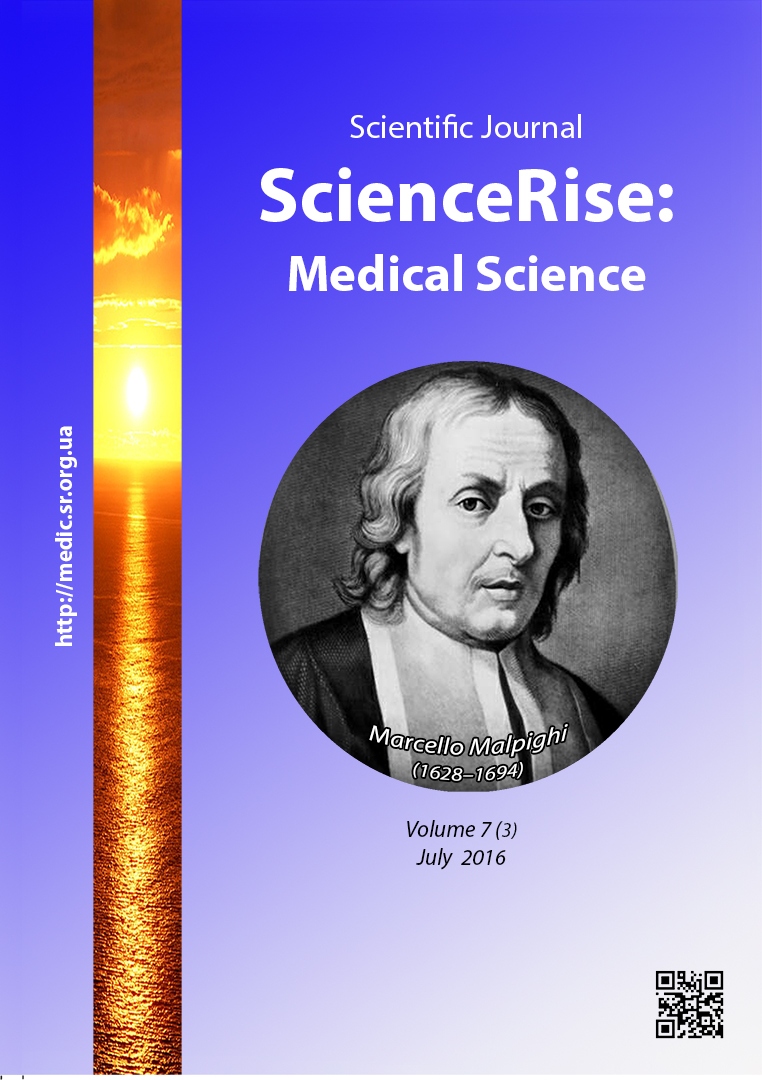Особистісні патерни у хворих з вугровою хворобою
DOI:
https://doi.org/10.15587/2519-4798.2016.74341Ключові слова:
вугрова хвороба, пацієнти, особистісні патерни, медико-психологічна допомога, психологічні мішені, психодерматологіяАнотація
Вугрова хвороба – це актуальна проблема сучасної дерматології та психодерматології. У хворих з хронічним перебігом акне виявлено наростання невротизації, психічної нестабільності, підвищення ситуативної агресивності, схильність до депресивного відреагування, інтровертованості, зниження комунікабельності, підвищення сором’язливості. Дестабілізуючий вплив особистісних рис на стан психологічної та психосоціальної адаптації, вказував на необхідність розробки комплексної програми медико-психологічної допомоги
Посилання
- Keri, J. (2016). What’s new in acne and rosacea? Seminars in Cutaneous Medicine and Surgery, 35 (2), 103–106. doi: 10.12788/j.sder.2016.030
- Shupenko, O. M., Stepanenko, V. I. (2009). Acne in men: Current state and importance of the definition set of additional factors and mechanisms that are significant in the pathogenesis of dermatosis. Cosmetology, 4 (35), 46–61.
- Collier, C. N., Harper, J. C., Cantrell, W. C., Wang, W., Foster, K. W., Elewski, B. E. (2008). The prevalence of acne in adults 20 years and older. Journal of the American Academy of Dermatology, 58 (1), 56–59. doi: 10.1016/j.jaad.2007.06.045
- Nosacheva, O. A., Karkashadze, G. A., Namazov-Baranova, L. S. (2012). Psycho-emotional state of children and adolescents with acne. Pediatric Pharmacology, 9 (4), 42–47.
- Horyachkyna, M. V., Belousova, T. A. (2012). Modern knowledge about pathogenesis, clinic and therapy of acne in women. Russian Medical Journal, 22, 1153–1157.
- Naumova, L. O. (2014). Hormonal disorders as an important pathogenetic factors of acne in women. International Journal of Endocrinology, 5 (61). Available at: http://www.mif-ua.com/archive/article/39145#prettyPhoto
- Voloshina, N. O. (2014). Assessment of quality of life in patients with acne vulgaris. Bukovina Medical Journal, 18/3 (71), 39–42.
- Holousenko, I. Y., Olhovskaya, K. B., Lyapon, A. O. (2012). Quality of life and psychological status of women with acne. Medical practice, 4, 15–19.
- Koo, J., Lee, C. (2003). Psychocutaneous Medicine. New York, 376.
- Volkova, N. V., Glazkova, L. K. (2013). Psychosomatic aspects of acne. Russian Journal of Skin and Venereal Diseases, 4, 51–54.
- Vansovskaya, L. I., Hayda, V. K., Gerbachevsky, V. K. et. al. (1997). Experimental and Applied Psychology. Sankt-Peterburg: St. Petersburg University, 312.
##submission.downloads##
Опубліковано
Як цитувати
Номер
Розділ
Ліцензія
Авторське право (c) 2016 Максим Валерійович Литвиненко

Ця робота ліцензується відповідно до Creative Commons Attribution 4.0 International License.
Наше видання використовує положення про авторські права Creative Commons CC BY для журналів відкритого доступу.
Автори, які публікуються у цьому журналі, погоджуються з наступними умовами:
1. Автори залишають за собою право на авторство своєї роботи та передають журналу право першої публікації цієї роботи на умовах ліцензії Creative Commons CC BY, котра дозволяє іншим особам вільно розповсюджувати опубліковану роботу з обов'язковим посиланням на авторів оригінальної роботи та першу публікацію роботи у цьому журналі.
2. Автори мають право укладати самостійні додаткові угоди щодо неексклюзивного розповсюдження роботи у тому вигляді, в якому вона була опублікована цим журналом (наприклад, розміщувати роботу в електронному сховищі установи або публікувати у складі монографії), за умови збереження посилання на першу публікацію роботи у цьому журналі.










